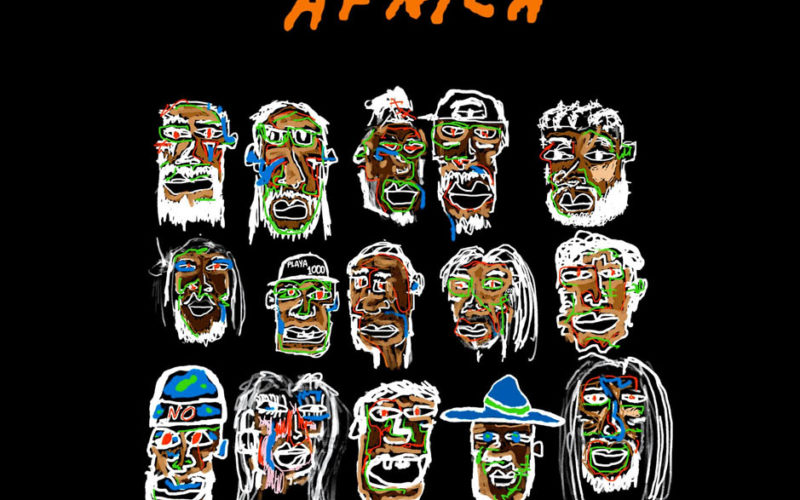MONICA HOOPER
mhooper@nwaonline.com
The second Arkansas Black Music and Film Expo promises a party with an educational twist.
“Last year we hosted our inaugural celebration at The Jones Center, and it was solely based around music. This year, we decided to expand it into film,” says Anthony Ball, vice president of Music Moves. “We have a lot of great directors locally, and in our region as well. We’ve kind of been diving into a little bit of documentary and film as well, too. So we kind of want to add that piece to it. We thought it’d be a great addition.”
While the two-day celebration of Black music and film still focuses mainly on music, a Friday evening event will feature a screening of “Growing Up Grovey,” a documentary by former Razorback quarterback and Emmy nominee Quinn Grovey.
“He’s bringing his documentary talking about his upbringing and some of the adversity that he went through,” Ball explains. “We have a local director — I call him a local celebrity — Michael Day. He’s going to bring in some short films. He has a YouTube series right now.” The series, “The Sextons,” is on Day’s Dayvision YouTube channel at youtube.com/@dayvisionfilms.

There will also be a showing of a documentary about the 1921 massacre that occurred in the Greenwood Neighborhood of Tulsa, Okla., known as “Black Wall Street.” Hundreds of people were killed and thousands lost their homes when white Tulsans attacked the area in one of the worst incidents of racial violence in U.S. history, one often omitted from history textbooks. The documentary will be presented by a group of artists out of Tulsa that calls its project “Fire in Little Africa.” Each screening will include Q&A panels with the filmmakers.
Following the film screenings, The Rodney Block Collective featuring Bijoux, a singer and University of Arkansas alum, will perform.
“They perform together a lot, and she’s great. I love her energy. She’s amazing,” Ball adds. “She’s beloved in Northwest Arkansas, so we wanted bring her back and have her be part of the celebration as well.”
On Feb. 18, “we’re jumping the whole day off by joining the Fayetteville Mardi Gras parade at 2 o’clock. It starts in downtown Fayetteville, goes up Block street, down Dickson, in front of the Walton Arts Center,” Ball says. “Our addition will be the [University of Arkansas at Pine Bluff] Marching Band, M4. … This is the first time they’ve ever had a marching band in their parade. So we’re really excited that.”
Then the party stops at George’s Majestic Lounge on Dickson Street with music by Crescent City Combo, “which is a local New Orleans, Mardi Gras brass band that’s going to be marching in that parade as well,” Ball continues. The Racy Brothers, “an award-winning traditional Black gospel group that’s been performing for a long time around the country” will also perform. In between sets, Music Moves will offer information on the music that the audience is hearing and “the evolution of Black music — how it was created, and how it evolved in America.” That is a family friendly event. Tickets are $10, free for children 12 and younger.
At 7 p.m Funk Factory, a local party band, kicks off an evening of Black music at George’s that offers multiple genres including soul/rock singer Branjae from Tulsa.

“I tell people she’s a mix between Macy Gray and Tina Turner — super energetic and a fashion icon and amazing powerhouse singer,” Ball says. Following her performance will be Avery Sunshine of Atlanta, platinum recording artists H-Town, and the Ying-Yang Twins.
“There’s a variety of Black music — everything from jazz music to gospel to hip hop, soul, funk to rock,” Ball says. “It was very intentional. Most of the time when you say ‘Black music,’ people think of like gospel or hip-hop. Our goal in doing this expo was to give people a buffet of music that’s come from an African diaspora, whether it’s rock ‘n’ roll, whether it’s country music, whether it’s blues — we wanted to get in a whole scope of Black music.”
That intent reflects the mission of Music Moves, “to make Black music accessible to students and to our communities through performance and education.”
“Black music is the largest export out of America,” Ball adds. “So when it comes to exposing people to one of the most valuable inventions in America, we just want to make sure we share that with everybody. I always tell people that culture is to be shared with everybody.”
Proceeds from this event and others helps Music Moves to continue sharing that culture.
“We’ve always done the work of bringing this kind of music to Northwest Arkansas, and the community has always responded to it,” Ball says. Additionally the proceeds help Music Moves continue music education in schools.
“We’re able to go into the schools and educate the kids about Black music, and our curriculum has a focus on Arkansas,” Ball says. “I think it’s always important for these kids to kind of see themselves in history, to keep their value there.” He points to examples such as gospel/rock-n-roll pioneer Sister Rosetta Tharpe and classical composer William Still Grant, Black musicians from Arkansas who are not well known.

“Most people when they think of music, they think of Austin, Texas, and New Orleans, L.A., Nashville, but it’s important for these kids to know that you can do it here, and [that] Arkansas has a great history in music in America.”
_
FAQ
Arkansas Black Music and Film Expo
WHEN — 6 p.m. Feb. 17; 2 & 7 p.m. Feb. 18
WHERE — Friday night at Fayetteville Town Center; Fayetteville Mardi Gras parade and George’s Majestic Lounge on Saturday
COST — $75 weekend pass (13 and older); $50 for general admission to film screenings, open bar and after party; $10 for Saturday afternoon music expo; $30 Saturday night music expo
INFO — musicmovesar.com/event/abmfe/
COMING SOON: Juneteenth Celebration, June 17, at Shiloh Square in Springdale.










